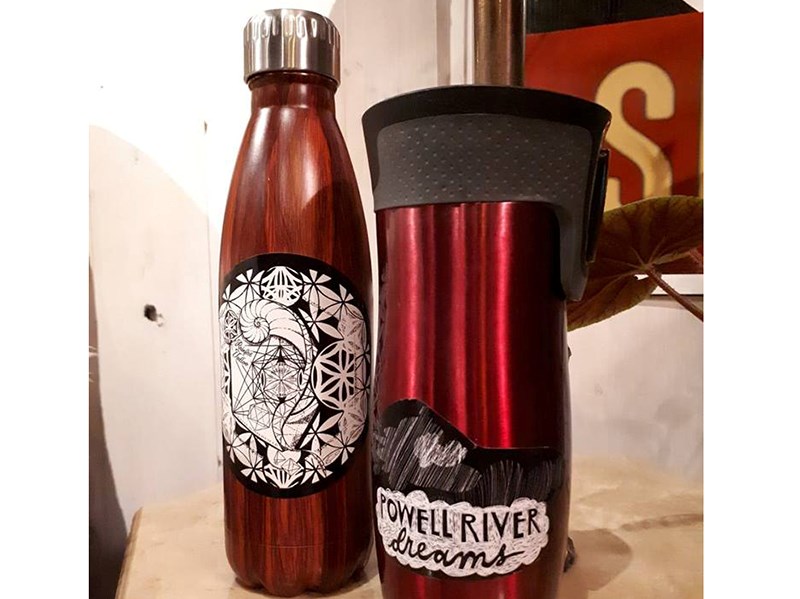It’s time to get yourself a refillable water bottle and a reusable thermos.
No more reading or thinking about how it’s a good idea. No more relegating your refillables to the backseat of your car to be forgotten until they beg attention from their rising stench. It is time for action.
The great news is that it has never been easier to do what is right. Thrift stores abound with secondhand options that will fit any budget. You can personalize even a slightly dinged one with a few funky stickers.
There are also added incentives, such as discounts at your Powell River favourite cafés, coffee that stays piping hot, and kudos from passersby for your eco-attitude.
Some of us around Powell River seem to still need more motivation to dispose of our addiction to disposables. But, should it really take a whale washing up dead on Indonesian shorelines with 115 plastic cups in its stomach (only a fraction of the 13 pounds of plastic it had inside) for us to wake up to the cost of our lives of convenience? And at what point do we become too numb to the overwhelming statistics about ocean plastics?
The challenge of managing single-use to-go cups and containers is so massive that Metro Vancouver has initiated a series of bans. Come June of next year, foam cups, foam containers and plastic straws, for example, will be a thing of the past. Plastic cups and containers are next on deck.
Switching from plastic or even paper to-go cups to compostable plastics is not the ultimate solution either. Compostable plastics come in all kinds of recipes, and even the best of them are only intended to break down in a high-heat composting facility.
qathet Regional District’s composting pilot programs do not happen to accept any kinds of compostable plastic, so well-meaning Powell River area vendors are wasting their money on the more expensive cups. At best, these end up in the landfill where they do not effectively breakdown in the anaerobic environment. At worst, they contaminate our plastic recycling stream and the soil that our compost turns into.
Thirsty much? Enjoy indulging in a midday tea break? Keep quenching yourself to your heart’s desire. Just do it, one reusable cup at a time.
Let’s Talk Trash is qathet Regional District’s waste-reduction education program.



